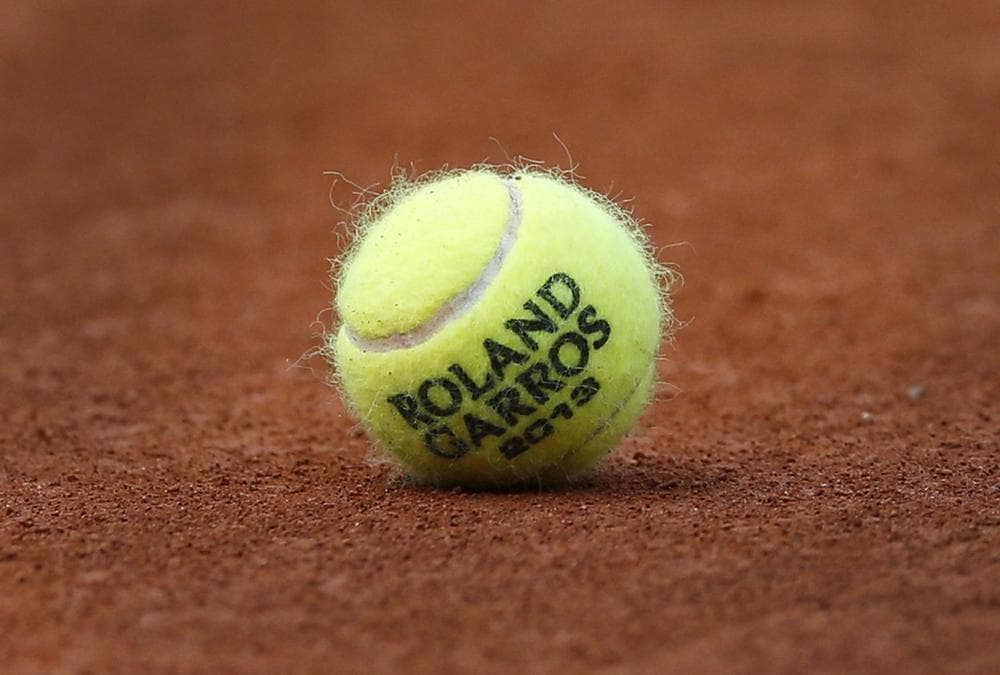Advertisement
Interview
What's In A Name: The French Open and Roland Garros
Resume
The French Open is underway in Paris. Unless you're one of the millions who know the tournament by the name Roland Garros. Christopher Clarey wrote about the French Open's identity crisis for the New York Times. He joined Bill Littlefield for a deeper look.
BL: Chris, what should I call this tennis tournament?
CC: You know, that’s really a quandary. It has been for a long time. If you’re from one part of the world you’re calling it the French Open and then if you’re from another part of the world over here or in Latin countries you’re calling it Roland Garros. And it’s funny because it really didn’t used to be a problem for them, but it is becoming a problem now.
BL: How do they figure it out? Do they draw straws in different countries to figure out what to call it?
CC: Well, it’s sort of evolved over time because the actual official name of the tournament is the Championnat Internationaux De France, so it’s the International French Championships. But over time in French vernacular it’s come to be called Roland Garros, which is the name of the stadium. Everybody you talk to in France, or in Spain or in much of South America will call it Roland Garros. All along the French Open has been the name in the U.S. because it goes along with the U.S. Open and the Australian Open when the tournaments all changed character there is ’68. So, it’s just this dual-track that’s been established, and now, it’s getting tough because you have Twitter, Facebook and things with hashtags. It’s hard to figure out what the heck it is half the time.
BL: Since the venue and the tournament are known, at least to some, as Roland Garros, one might assume that Roland Garros was an accomplished tennis player. But if one did, one would be wrong, right?
CC: He wasn’t much of a tennis player at all, he was much more into rugby. The reason the stadium is named for him is he was a war hero in World War I. His plane was shot down in 1918. But he’s really best known for setting a lot of the speed records in terms of flying, and so that's really where he's made his name for himself. They wanted to build this stadium in 1928 to host the Davis Cup between the French and the U.S. And they were trying to do it in a hurry and part of the deal was the city and Roland Garros’ friends wanted it named posthumously for him, and so there it was.
BL: In what ways does the split personality of Roland Garros/French Open affect the various ways in which the tournament is marketed?
CC: I think the tricky thing is for them is for a long time they were trying very hard to just promote Roland Garros and kind of make a real concerted effort to get the USA and English-speaking countries to change to that name. I think they found a couple things were difficult. One, it’s pretty anchored in the societies and two it’s pretty hard to pronounce. That seems to be their point of view. If it had a different name, I’ve heard guys tell me if the thing was called "Jack Black," it would be no problem. But the fact that it’s Roland Garros makes it tough.
BL: Will the inclination to call this tournament by two names persist? Or will marketing concerns give "French Open" the edge over "Roland Garros" eventually?
CC: I think we’re stuck with two, but the thing that’s funny about it is they were really hopeful about China and that was one of their big goals was to get Roland Garros to be the Chinese name of the tournament. When I talked to them a couple years ago about it they said that was their plan and then I got my update this year and they’ve given up. They decided that’s it’s gonna be French Open in China, too. But the really funny thing is if you look at the websites the WTA which is the women’s tour and the ATP which is the men’s tour look at the websites or their media guides, the men play at Roland Garros and the women play at the French Open.
BL: Are you aware of any particularly interesting misunderstandings caused by the fact that this tournament goes by two names?
CC: I’m not sure about misunderstandings, but I think there’s missed opportunity. And one of them is commercial in the sense that you cannot buy an officially-licensed French Open product: clothing, accessories or anything else that has French Open on it. So think of all the marketing opportunities being lost there in terms of English-speaking countries around the world.
This segment aired on June 1, 2013.